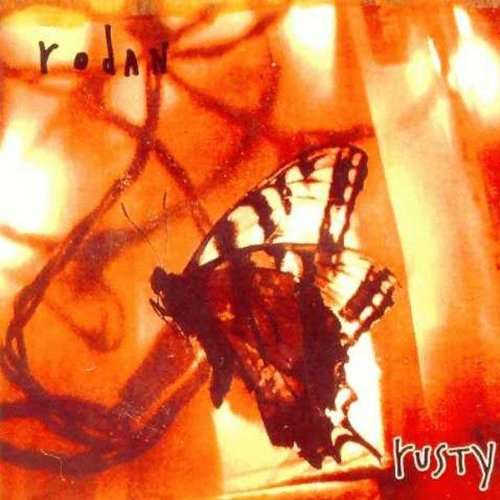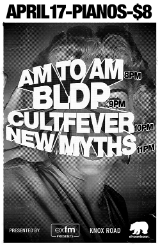The Past Presents revisits revered albums from the past 20-25 years to ask the question, “Is this album still a classic, or has it lost its edge over the years?”. Was it a great record for that particular time and place, or is it something we’ll be passing on to our kids? It also looks at the “lost classics” – countless albums that should have earned more attention but for one reason or another fell through the cracks.
The first half of the 1990s was undeniably a high point in the history of indie rock. While grunge exploded into the mainstream, the indie world played host to a myriad of sounds, some new, some modern adaptations of previously mined genres. Punk experienced a renaissance with a new generation taking the reigns and breathing new life into hardcore and even pop-punk. Indie-pop saw a host of bands offer new takes on the college rock sound pioneered in the late 70’s and most of the 80’s. Perhaps most interesting and, in my opinion, most significant development of the early 90’s was the maturation of the post-rock sound.
While in many ways genre labels are kind of difficult to deal with due to their inherent ambiguity, looking at the definition of post-rock gives a starting point. The term was defined by English music critic Simon Reynolds in 1994 as, “using rock instrumentation for non-rock purposes, using guitars as facilitators of timbre and textures rather than riffs and power chords”. The guitar, the centerpiece of rock music for decades, escaped its conventional roles and found new life as a rhythm instrument, sometimes percussion instrument, and at times taking over the role played by vocals in the traditional rock blueprint. Post-rock did similar things for indie-rock as free jazz did for the jazz genre twenty years earlier.
There’s no shortage of classic post-rock albums. With many of the traditional rock barriers removed bands were more inclined to explore less traditional expressions of their music. There was a broader acceptance of instrumental bands, jazz-rock albums, and experimental electronic-rock hybrid albums. Through all the experimentation there were still bands that stuck with a guitar-heavy rock sound, but had a penchant for more complex rhythms and timing changes, often referred to as math-rock, a kind of sub-genre of post rock. In this category one of the all-time greats was Rodan. Part of a robust Louisville, KY scene, Rodan, fronted by Jeff Mueller, later of June of 44 and Shipping News, and Jason Noble, also of Shipping News and Rachel’s was a rather short lived four-piece whose lone album, Rusty, remains a classic record. Rusty is a powder keg of an album, filled with overblown guitars and jagged rhythms that leave the listener exhausted but ultimately satisfied.
The album’s opening track, “Bible Silver Corner,” is the sound of an uncomfortable distraction. It could be pain, sadness, anger, something is causing a well of emotion to swell to the surface and this song is the musical form of that particular feeling. As the song continues the emotion coils upon itself becoming more tense and intense with each passing minute. The tension is almost unbearable by the time the second track, “Shiner,” explodes from the speakers. This song is like a shotgun blast to the face right from the start. There is so much rage and frustration in this song, pummeling the listener for two and a half minutes. When the song is finished those two and a half minutes can seem like a small eternity. “Shiner” is relentless and unforgiving and is nothing short of rock bliss.
“The Everyday World of Bodies” stretches on for nearly twelve minutes and always reminds me of a man walking away from some sort of fight. This epic alternates between moments of frustrated rage and hushed calm beauty. It’s easy to imagine a man calming himself after a particularly nasty confrontation; he’s still angry and it overwhelms him sometimes, but he’s also slightly embarrassed about the whole affair. This song is the sound of that inner conflict and his desperate attempts to bring balance to his mind.
Rodan saved the best for last with the album closer, “Tooth Fairy Retribution Manifesto.” Bassist Tara Jane O’Neil shines throughout the album, but this track is her showpiece. Bass rhythms power this track complimented by her vocals which run the gamut from tender to snarling. “Tooth Fairy Retribution Manifesto” is a resigned resolution to the rage, pain, and underlying frustration that runs through Rusty. The record concludes with the listener out of breath but ready to start all over again.
Seventeen years later, Rusty holds up as an essential album. Nothing here sounds dated or cliché, and theses songs and Rodan’s sound have lost nothing to time. I think what made Rodan great was the power in their music. Each song was an explosion waiting to happen and the complex interplay between the instruments and rhythms exquisitely enhanced the mood of the songs. Unfortunately Rodan only graced us with one album and a short lifespan as a band, but the band and their album remain a testament to the greatest era of post-rock.









